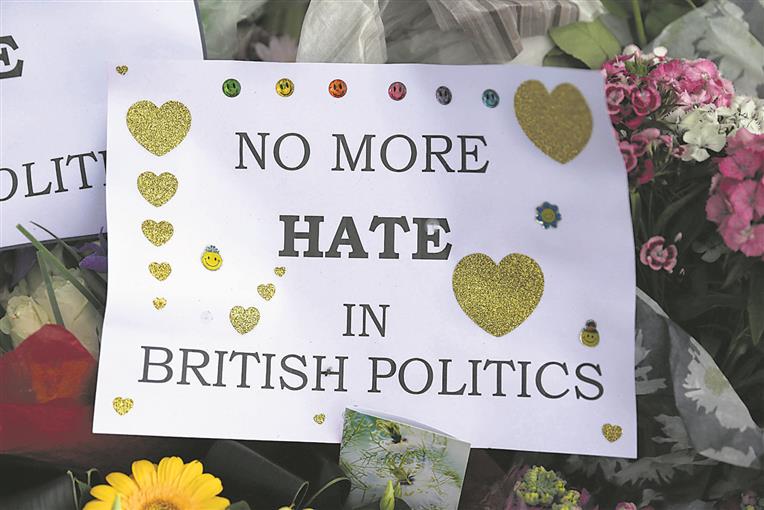
CHALK AND CHEESE: The Conservative Party and the Labour Party have launched manifestos with sharply differing programmes.
Pritam Singh
Pritam Singh
Visiting Scholar, Wolfson College, University of Oxford
THE December 12 General Election is certainly the most significant election in the UK after World War II. The result of this election will decisively shape the future of the UK in a similar way the post-war election result had determined the key dimensions of British economy and society. It would also have significant international ramifications, especially its impact on the US presidential election next year.
The welfare capitalist model that developed after the war was an innovation of huge importance in governance. The National Health Service (NHS) was launched where every citizen, irrespective of his economic status, gets the same level of care and treatment. This still remains the best healthcare system in the world in spite of different degrees of privatisation — mostly hidden from the view of the patients — that have crept in since the attack launched on the welfare state from the time of the rise of Margaret Thatcher to power in 1979. Redistributive policies — taxing the rich and providing support to the less privileged — were put in place. Pensions were launched to bring about equality of living standards in different phases of an individual’s life. Education at all levels was made available without any tuition fee. Public housing facilities were provided to all government employees.
The two main contestants — the Conservative Party led by current Prime Minister Boris Johnson, and the Labour Party led by Jeremy Corbyn — have launched their manifestos showing sharply differing programmes. If Johnson wins, the further dismantling of the welfare state would follow, though even he would not dare to touch the NHS which has emerged almost as a sacred national institution. The importance of NHS is so etched in mass consciousness that when Thatcher had tried to dismantle it, even Tory party members had revolted against her, leading eventually to her downfall. If Corbyn wins, the further strengthening of the welfare state would follow. The British establishment and the privileged sections of society are terrified at the prospect of Corbyn becoming the Prime Minister. He has been subjected to a vicious media campaign against him by the privileged elite sections of society that want to prevent his rise to government power. This right-wing media campaign against him has been joined by the pro-Israel Jewish lobby which does not want a Prime Minister in the UK who is pro-Palestine. The reverse side of Jewish campaign against the pro-Palestine Corbyn is that the Muslim vote would be mobilised en bloc in favour of him.
The union of four nations that constitutes the United Kingdom would face an existential crisis of a kind in the post-election period that has not been witnessed before. It is because of the complexity of the political alliances that despite the two main parties differing fundamentally from each other, the crisis to the UK union would emerge irrespective of who wins. If Corbyn forms the government, it would certainly be with the help of Scottish National Party (SNP), which is likely to sweep the elections in Scotland. The SNP would put one key condition for support to Corbyn, namely, that he as prime minister would allow holding a second referendum on Scotland’s independence from the UK.
A legally binding referendum requires that the Prime Minister of the UK agrees to holding a referendum. If Johnson’s Conservative/Tory Party wins the election, that will also give a push to the demand for Scottish independence because Scottish people resent Tory rule over them when they have not been voting for Tories in Scotland for decades. Conservative victory would also give a fillip to Irish unification which would result in Northern Ireland exiting the UK. The withdrawal agreement on Brexit that Johnson has negotiated with the European Union stipulates border on the Irish sea between Northern Ireland and the UK mainland. The creation of this border pushes Northern Ireland more towards unification with the Republic of Ireland, which is part of the European Union.
What is also remarkable about this election is that the Labour Party has promised its most transformative agenda for creating a fair and equal society in the UK. The core of this agenda is taxation of the superrich, raising the minimum wage, strengthening trade union rights, and above all, a Green Industrial Revolution. The Green Party, though a small party, has worked tirelessly all these decades to bring to public consciousness the importance of facing the environmental catastrophe. The work of the Green Party has eventually influenced the programme of all political parties, but especially the Labour Party, whose Green Industrial Revolution aims at green retrofitting the entire economy by abandoning fossil fuel energy and replacing it by renewable energy.
The South Asian diaspora has traditionally been sympathetic to the Labour Party because of the latter’s long-established politics against racism and in favour of immigrants and ethnic minorities. However, a section of the rich segments of the diaspora has moved over to the pro-rich Conservative Party, though the overwhelming majority of South Asians still remains pro-Labour.
At the beginning of the election campaign, the Conservatives had a huge lead over Labour, but this lead is narrowing each single day. If the lead remains over 7 per cent, the Conservatives are likely to retain majority, but if it goes down below 7 per cent, the likelihood is of a hung parliament which will result in Labour-led government supported by anti-Conservative parties including the Liberal Democrats. The election outcome this time is also likely to be influenced by tactical voting by all anti-Conservative voters to vote for the strongest anti-Tory candidate in each constituency irrespective of the party affiliation of such a candidate. At least 50 seats have been identified out of the total 650 where if tactical voting against Conservative candidates succeeds, it will lead to overall Conservative defeat.
Join Whatsapp Channel of The Tribune for latest updates.




























